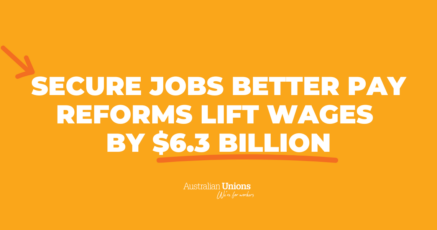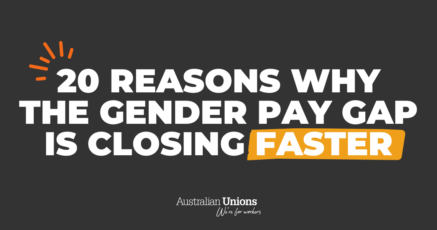The numbers show we can’t wait for change
In Australia, a woman is killed by a partner, ex-partner, or family member each week.
Support is always available
-
Call 000 if you, a child, or another person is in immediate danger.
-
1800RESPECT: Call 1800 737 732 if you or someone you know is impacted by sexual assault, domestic or family violence.
-
No to Violence Men’s Referral Service: Call 1300 766 491 for anonymous and confidential telephone counselling, information and referrals for men.
-
Kids Helpline: Call 1800 55 1800 for 24/7 counselling for Australian children and young people.
-
Q Life: Call 1800 184 527 for anonymous and free LGBTQIA+ peer support and referral.
The Australian Bureau of Statistics’ most recent Personal Safety Survey found that 1.7 million women have reported facing violence at home since age fifteen.
The pandemic has seen these numbers surge – and not everyone is in a position to file a report, meaning the true picture of domestic violence in Australia is likely to be far more horrific than any number can capture.
It’s an unacceptable situation requiring urgent action.
Escaping abusive relationships requires paid Family and Domestic Violence Leave
Escape takes time and money.
It can cost up to $20 000 and take more than 140 hours to find a new and safe place for an individual and their family – but Federal laws currently only provide for five days of unpaid leave.
That’s why Australian Unions are running the We Won’t Wait campaign and calling for a minimum of ten days paid Family and Domestic Violence Leave.
One in three employers now offer this leave, as do all State and Territory Governments, but that means two out of three workers are still missing out.
All workers deserve the time, support, and job security to safely escape and recover from an abusive relationship.
Your safety shouldn’t depend on your employer.
And this leave entitlement needs to be included in national workplace laws to help women escape violent situations. The Federal Government must provide access to paid family and domestic violence leave.
Working from home has made domestic violence harder to escape
In May 2020, after the pandemic first started affecting Australia and the world, the Australian Institute of Criminology surveyed 15,000 women aged 18 years and older about their experience of domestic violence.
The research provided the most detailed information in the world about the prevalence and nature of domestic violence experienced by women during the pandemic.
The data revealed that 4.6% of all women who responded to the survey – and 8.8% of women in a cohabiting domestic relationship – experienced physical or sexual violence from a current or former partner in the three months before the survey.
Many reported it was the first time their partner had been violent, while others said the violence was getting worse. For a third of these women, this was the first time they had experienced physical or sexual violence within their relationship.
It’s been more than a decade since unions won the first enterprise agreement that included paid leave to escape domestic and family violence. Since then, we’ve made significant progress working with employers – but there’s still so much more to be done.
While the government remains silent, strong voices resonate
It’s becoming increasingly clear that the Morrison government is more than happy to remain silent on issues that impact Australian women and workers. But strong voices are filling the void left by the current government.
Recently at the National Press Club, Grace Tame and Brittany Higgins represented a generation of women not afraid to stand up and demand change.
They made clear that, whether by addressing the nation, marching for justice or simply not giving the most powerful man in the country his much-coveted photo op, women are using their voices to call out the incompetence of a government more concerned with its own electability than the safety of its citizens.
In her address, Grace Tame reminded us that ‘the federal government’s approach to social issues seems to consist of nothing but empty announcements, placatory platitudes, superficial last-minute acknowledgements, and carefully staged photo ops.’
Brittany Higgins verbalised the frustration of Australian women when she stated, ‘I’m not interested in words anymore. I want to see action.’
To the strong voices, we say thank you for your courage to speak out and stand up for all survivors of sexual violence.
To our political leaders, we say that you have failed to make our homes and workplaces safer. Do better or make way for the people who will.
We demand ten days of paid family and domestic violence leave and the full implementation of the Respect@Work report.
Support is always available.
Contact your union for support or contact the Australian Unions Support Centre for free and confidential information and workplace advice. There are also specialist services you can contact if you require support.
- Call 000 if you, a child, or another person is in immediate danger.
- 1800RESPECT: Call 1800 737 732 if you or someone you know is impacted by sexual assault, domestic or family violence.
- No to Violence Men’s Referral Service: Call 1300 766 491 for anonymous and confidential telephone counselling, information and referrals for men wanting to take action and stop using violent and controlling behaviour.
- Kids Helpline: Call 1800 55 1800 for 24/7 counselling for Australian children and young people aged between 5 and 25 years.
- Q Life: Call 1800 184 527 for anonymous and free LGBTQIA+ peer support and referral for people in Australia wanting to talk about sexuality, identity, gender, bodies, feelings or relationships.
- The National Disability Abuse and Neglect Hotline: Call 1800 880 052 to report abuse or neglect of people with disability.
- ELDERHelp: Call 1800 353 374 to talk to someone about potential or actual elder abuse and information on how you can get help, support and referrals.






SHARE:
Paid Family and Domestic Leave – we’ve waited long enough